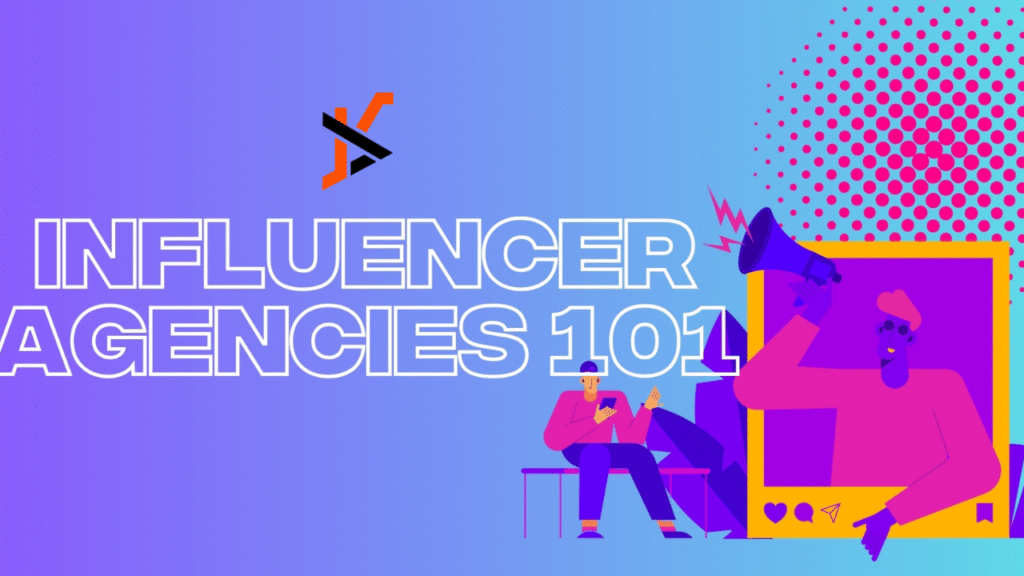One of the most discussed business tactics nowadays is influencer marketing. It was once thought to be an experimental strategy exclusive to lifestyle and beauty brands, but it has since developed into a widely used marketing channel with a global value of billions of dollars. However, complexity comes with quick expansion, and many companies now discover that they need professional advice to navigate this rapidly evolving market. This is where agencies are useful.
Defining Influencer Marketing
At its core, influencer marketing is about leveraging the credibility and reach of individuals who have built trusted audiences online. Influencers can sway consumer opinions and drive purchasing decisions through authentic content.
Influencer marketing integrates a brand message into experiences and stories that people already enjoy, in contrast to traditional advertising, which frequently interrupts consumers. Recommendations from reliable creators seem more like tips from friends than advertisements. This combination of reach and relatability explains why influencer marketing has become a multibillion-dollar industry, with global projections indicating that it will surpass $24 billion by 2025.
The Challenges Businesses Face
The potential for brands is obvious: influencer collaborations can result in significant engagement, increased brand recognition, and quantifiable sales. But putting these campaigns into action is not at all easy. In addition to negotiating fair rates, evaluating audience authenticity, sorting through thousands of potential influencers, and adhering to advertising regulations, businesses also need to track performance across various platforms.
Even big marketing teams frequently find it difficult to keep up with the rapid changes in the influencer market. Consumer preferences change, algorithms change, and new platforms gain traction almost immediately. Without the proper knowledge, companies run the risk of squandering funds, forming unsuitable alliances, or running unsuccessful campaigns.
Why Influencer Marketing Agencies Have Become Essential
Agencies specializing in influencer marketing step in to solve these challenges. They serve as strategists and navigators, assisting brands in navigating a complex and ever-changing environment. Influencer marketing agencies can find influencers who share a brand’s values and target audience by using databases, tools, and industry connections. This ensures partnerships are genuine and successful.
They are much more than just matchmakers. Increasingly, agencies are in charge of campaign strategy and design, coordinating influencer content with seasonal promotions, new product launches, and broader business goals. They also oversee the logistical details, such as contract negotiations, usage rights, deadlines, and deliverables, which can be too much for internal teams to handle.
Most significantly, agencies use sophisticated tracking tools to measure reach, engagement, conversions, and overall return on investment. They also add data and accountability to the process. Businesses can invest in influencer marketing at scale with the clarity and assurance that this methodical approach provides.
Authenticity as the Cornerstone
Emphasizing authenticity is a defining characteristic of influencer marketing today. Customers are quick to reject content that seems too staged or detached from an influencer’s genuine voice, and they place a higher value on transparency. This is where agencies come in, making sure that brands work with creators whose values and style actually match the product or service being advertised.
As a result, campaigns that focus on micro- and nano-influencers have become more prevalent. Despite having smaller fan bases, these creators frequently have very engaged and dependable audiences. This type of community-driven influence outperforms widespread but superficial exposure for many brands. Agencies play a key role in spotting these chances and creating campaigns that strike a balance between authenticity and reach.
The Business Case for Agency Support
A wider change in how companies perceive growth is reflected in the increasing power of agencies in this industry. Influencers are now a key component of the marketing mix rather than a side project. However, the majority of in-house teams are unable to maintain the knowledge, speed, and flexibility necessary for success in this setting.
By partnering with an agency, businesses reduce the risk of choosing the wrong influencers or falling victim to fraudulent practices. They save time by contracting out the labor-intensive tasks of compliance, contracts, and discovery. By ensuring that every campaign is linked to quantifiable results, they obtain clarity through strong analytics and reporting. Perhaps most significantly, they can create campaigns that are both imaginative and strategically in line with more general company objectives. Essentially, agencies offer the harmony between structure and innovation that enables brands to prosper in a cutthroat online market.
Looking Ahead
In the upcoming years, influencer marketing will keep expanding and changing. More focus on long-term brand ambassador relationships, a deeper integration of influencer content with e-commerce, and the emergence of new technologies, from AI-powered discovery tools to performance-based compensation models, are all likely to occur.
For businesses, the question is no longer whether influencer marketing is worth pursuing, but how to approach it effectively. Influencer marketing agencies are in a unique position to help brands navigate this next phase thanks to their combination of experience, technology, and strategic insight.
In addition to being competitive and dynamic, the influencer economy provides unparalleled chances for growth and connection. Businesses can confidently traverse this terrain with the assistance of agencies, which guarantee that campaigns not only garner attention but also genuinely connect with the most important audiences.

